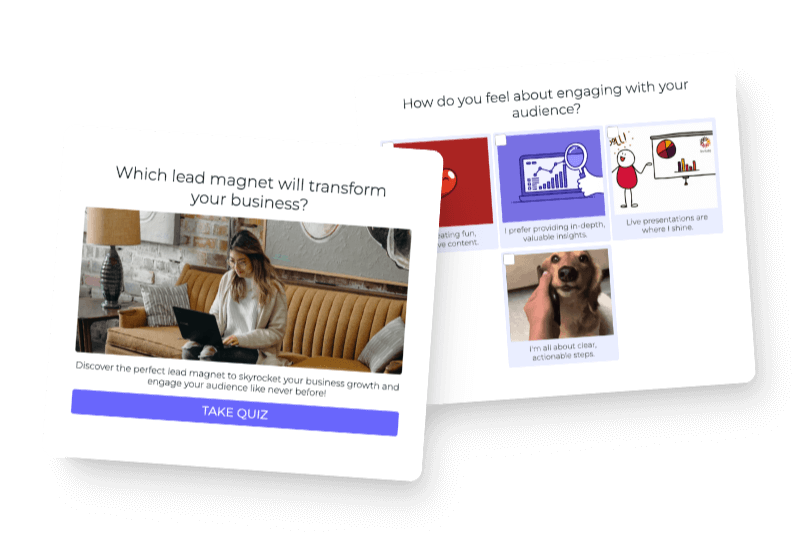If you’re considering using quizzes for list growth or zero-party data collection, you may be wondering why there’s so much hype around them.
By now you’ve probably heard people singing praises about how well quizzes work, so I wanted to shed some light on what is driving that success. For reference, the average conversion rate of a quiz is 40.1% from start to lead, meaning that four of ten people who start a quiz end up inputting their information at the end.
Here are the top five reasons why that number is so high.

1. Quizzes put the attention on the customer
Eric Schmidt, former CEO of Google, said that attention is the longest-standing currency. Technology and systems come and go, but the competition for attention is ever persistent.
A quiz puts the attention fully on the customer instead of on your company or products. It’s about them; you’re asking them for their opinions and preferences, making them the object of focus.
This is powerful, and a big reason why 65% of people who start a quiz will finish answering all the questions, despite how many distractions and other options we have for directing our attention throughout the day.
According to Rick Hanson, PhD professor at UC Berkeley, the fastest way to achieve your goals and get what you want is by helping others get what they want. Take the below example from myeasytherapy. It’s directed toward the person taking the quiz, putting all the focus on the customer. It’s a perfect example of helping others get what they want, unlocking a piece of critical information for the customer, and then gently offering services to aid in that goal at the end.
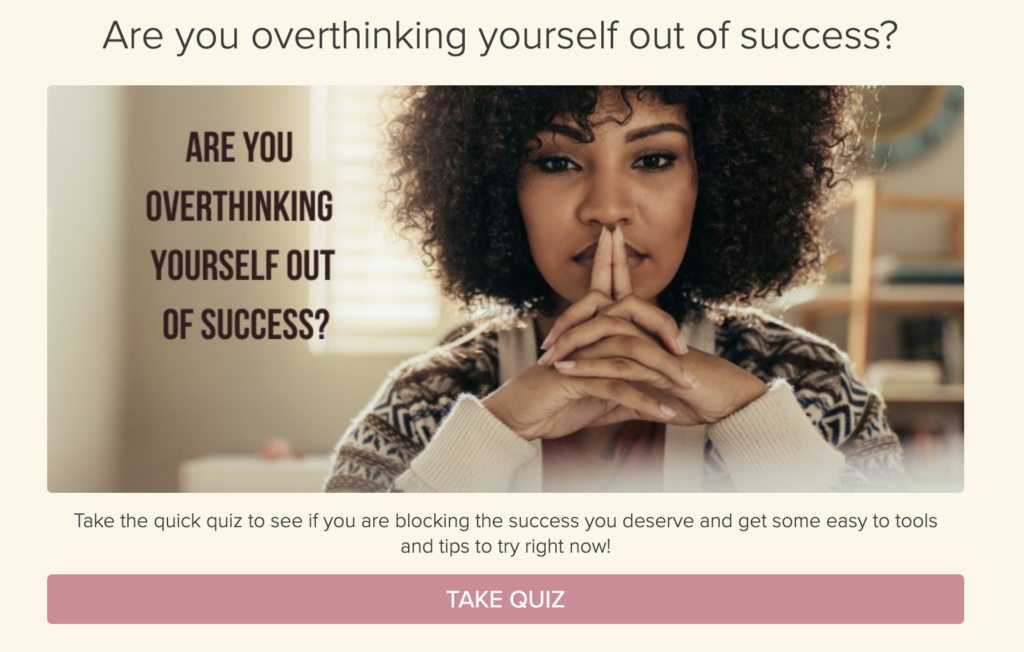
2. Quizzes solve the problem of choice
Decision fatigue is “the idea that after making many decisions, your ability to make more and more decisions over the course of a day becomes worse,” said psychiatrist Lisa MacLean. “The more decisions you have to make, the more fatigue you develop and the more difficult it can become.” (AMA)
This is a real problem that is only getting worse. We now have access to all of the information in the world at any time, but what that means is we also have to consider all of that information every time we make a decision, and the fear of making a wrong choice can be overwhelming.
Simply offering to help people make a decision on which product or service is best for them takes away the decision fatigue, and you can also offer your expert opinion while helping them choose.
Take a look at the quiz below from Spikeball. It helps people decide which spikeball set to get (spikeball is an outdoor game). The formula goes that you first help people solve their problem, and then included in your solution is an offer to help them through your products or services. It’s a subtle change, but the main thing is that you put the customer first in the process rather than your products or services.
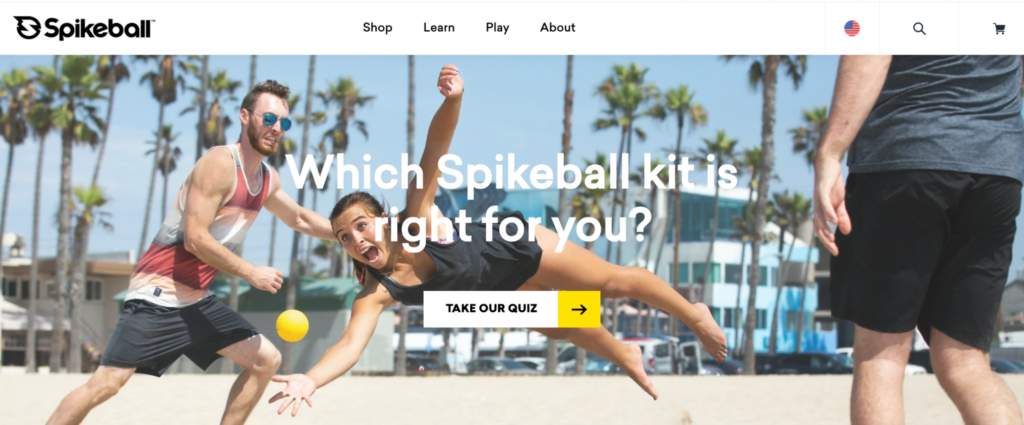
3. Quizzes make space for people to talk about themselves
“Talking about yourself is intrinsically rewarding, even if no one is listening.” (Scientific American)
Think for a second about most of the marketing we do. It’s a broadcast; we send out information about our products and services or the industry we work in. There is no interaction happening— the person on the other end is only receiving.
A quiz is fundamentally different. It starts and ends with a two-way communication style unique from all other forms of marketing. This creates a place where people get to talk about themselves instead of just listening, and science shows talking about yourself just feels really good. No wonder it works.
Take the following example from Make Life Dandy. They have a wine quiz that helps people find the right wine for their interests, asking questions about tastes and preferences. This gives their customers a chance to express themselves. It’s like they’re having a conversation to find just the right products, which feels good and creates a connection.

4. Quizzes help People learn about themselves
“Know Thyself” is inscribed on Apollo’s temple in ancient Greece. For all of time, people have endeavored to know themselves. There are many reasons for this, but we have identified in our research that self-knowledge creates connections with other people.
You must know yourself to learn what you are okay with and what your boundaries are. In a long-running research study, Brene Brown found that the biggest indicator of whether we see other people in a positive or negative light depends on if we keep our own boundaries. But you can’t know what your boundaries are unless you take the time to know yourself.
A quiz will not replace real conversation or mental health processes like therapy in the pursuit of self-knowledge, but it is one small step to helping people see who they really are. Over the years, we’ve accumulated quite the collection of psychology quizzes and relationship quizzes that can be used for building a deeper understanding around the ways we relate to other people.
Additionally, positive self-talk has been shown to increase life span, lower rates of depression, and lower levels of distress—not a bad lineup. Because a quiz can pinpoint one aspect of life and give the quiz-taker some information about themselves, that information can be turned back around and used for positive self-talk, which improves wellness.
Check out this example from Chelsea Monye. Her quiz helps people discover what they need most in their business. The quiz results pinpoint one area where they can improve to reach their goals more effectively. Of course, everyone wants to know where they should apply their time + energy for best results, so this quiz helps people learn an important piece of information about themselves.
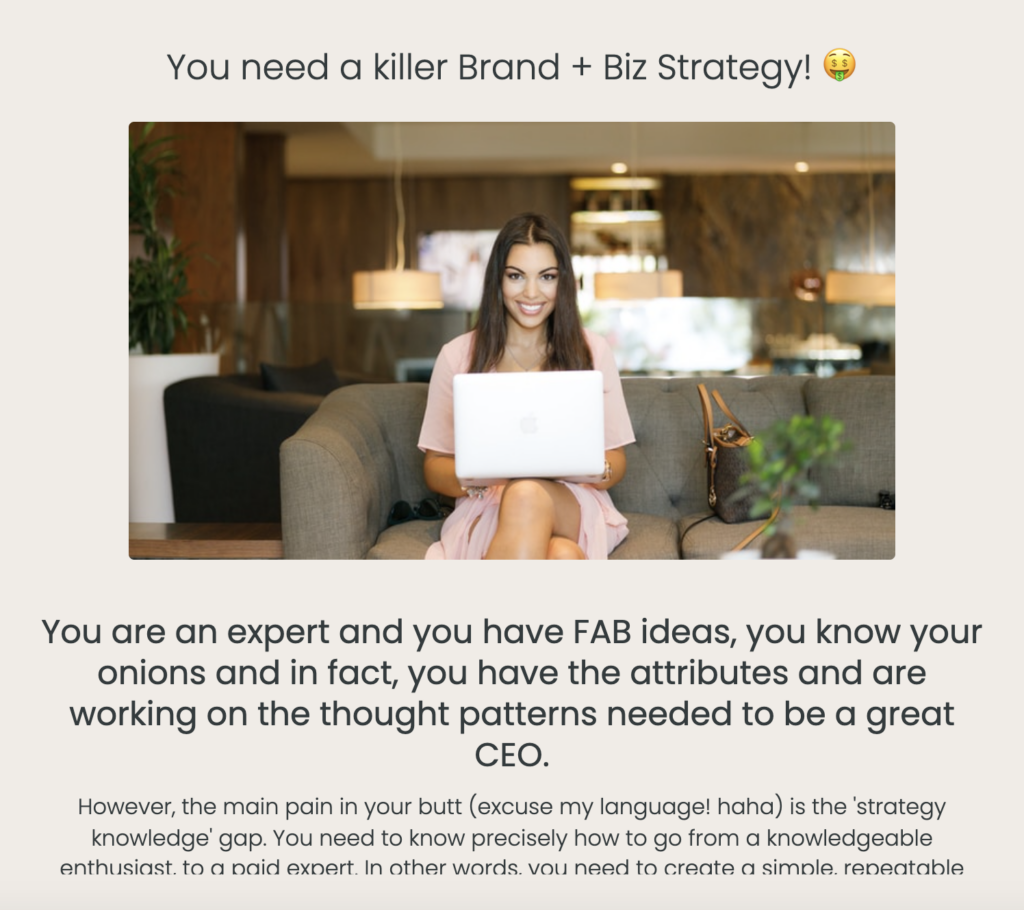
5. Quizzes are a connecting point
You’ve probably experienced this yourself: someone you know talks about or shares their quiz results. One of the reasons people enjoy quizzes is because they give an easy access point to begin a conversation with someone else.
Humans are wired for connection. In his book Social: Why Our Brains are Wired to Connect, UCLA professor Matthew Lieberman points out that physical and emotional pain have a neural overlap, meaning we feel pain when disconnected from other people, just like we feel pain when we touch a hot stove.
Take the example below from Piper and Leaf, a tea brand that created a quiz for people to find their ideal brew. This is a connecting point with friends: people can talk about their recommendation and share the results. Even in a digital-forward world, there is opportunity to connect through quizzes.
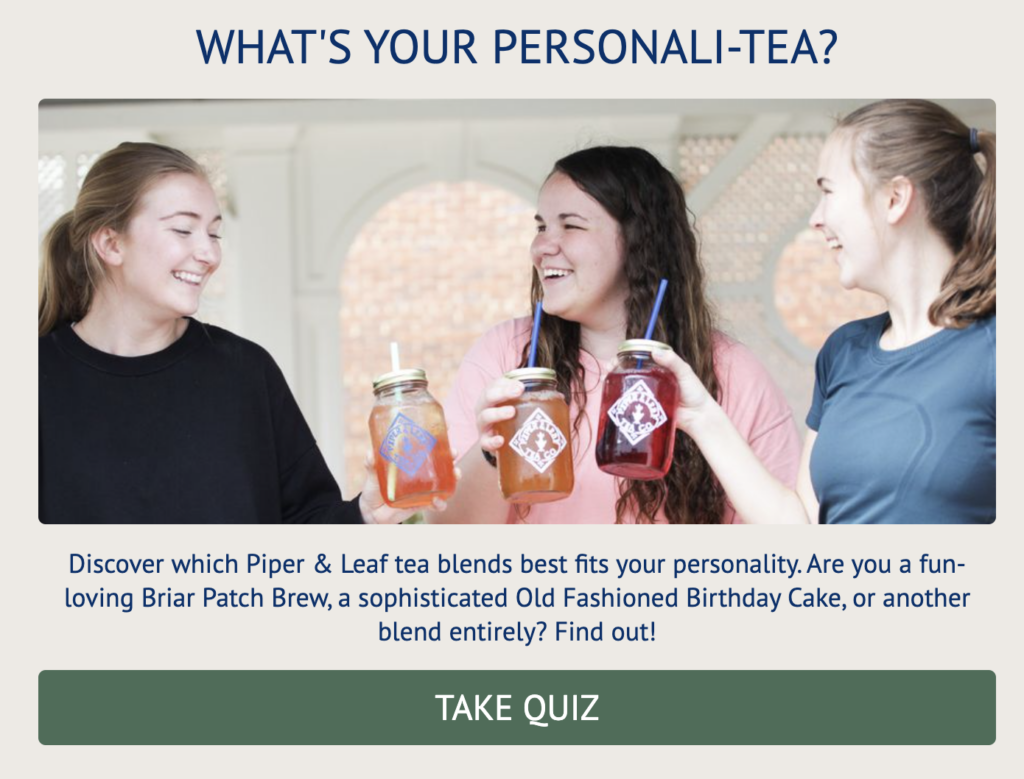
Conclusion: Quizzes are the future
The first version of online marketing was broadcasting information and guessing what would move people toward action. The second version is interactive, asking people for their preferences, interests, and ideals, and then guiding them toward the right products and services to help them reach their goals.
Quizzes are the new paradigm in marketing, and the numbers show they are highly effective at generating leads and collecting data.
